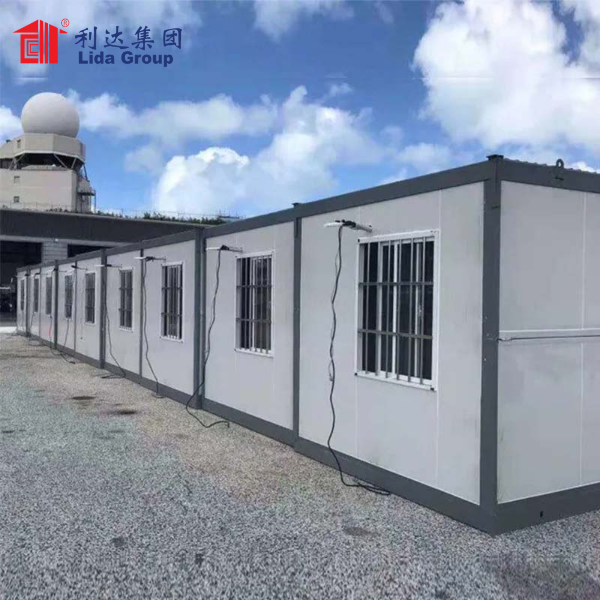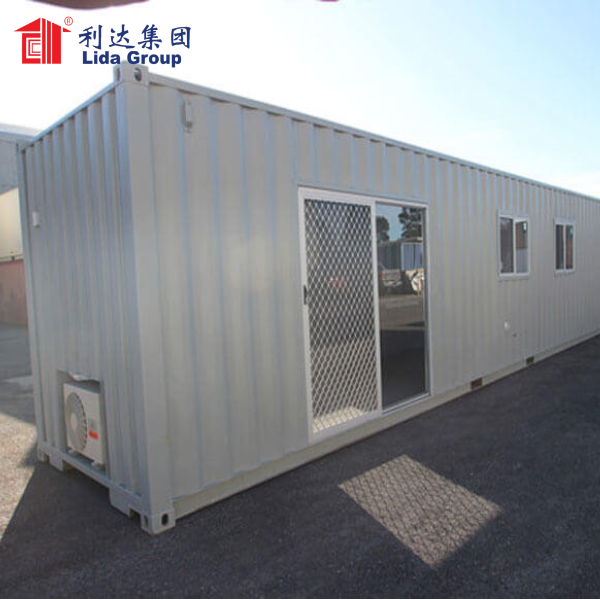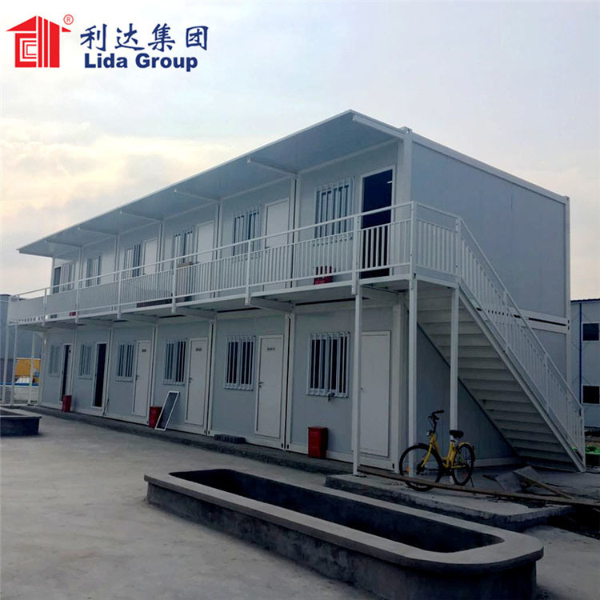Introduction:
Living in remote areas poses unique challenges, particularly when it comes to access to basic amenities and infrastructure. However, Lida Group, a pioneering construction company, has developed innovative off-grid container houses that provide sustainable solutions for remote living. In this article, we will explore the significance of off-grid living, delve into the advantages of container houses for remote areas, and showcase how Lida Group’s innovative approach has revolutionized sustainable living in remote locations.
- The Importance of Sustainable Solutions for Remote Living:
1.1 Remote Living Challenges:
Remote areas are often characterized by limited access to essential services such as electricity, water, and sanitation. Building infrastructure in these regions can be costly and logistically challenging, making it difficult to provide adequate housing solutions for residents.
1.2 Environmental Impact:
Remote areas typically boast pristine natural environments that need to be protected. Traditional construction methods and reliance on centralized infrastructure can have a detrimental impact on these delicate ecosystems, further emphasizing the need for sustainable and eco-friendly solutions.
1.3 Self-Sufficiency and Resilience:
Living off-grid in remote locations necessitates self-sufficiency and resilience. Sustainable solutions that enable residents to generate their own energy, manage resources efficiently, and minimize reliance on external infrastructure are crucial for creating sustainable communities in remote areas.
- Introducing Off-Grid Container Houses:
2.1 Sustainable Design:
Off-grid container houses are designed to operate independently of centralized infrastructure. They utilize renewable energy sources, incorporate water management systems, and employ sustainable construction materials to minimize their environmental impact.
2.2 Advantages of Container Houses for Remote Areas:
2.2.1 Mobility and Versatility:
Container houses can be easily transported to remote locations, making them an ideal solution for areas with limited access. Their modular design enables quick and efficient assembly, allowing for flexible placement and adaptability to the surrounding environment.
2.2.2 Energy Independence:
Off-grid container houses integrate renewable energy sources such as solar panels and wind turbines to generate electricity. This energy independence reduces reliance on traditional power grids, ensuring a continuous energy supply for remote communities.
2.2.3 Water Management:
Container houses can incorporate water management systems, including rainwater harvesting and filtration, to provide residents with a sustainable and reliable source of water. These systems reduce dependence on external water sources and promote efficient water usage.
2.2.4 Waste Management:
Container houses can implement innovative waste management solutions, such as composting toilets and recycling systems, to minimize waste generation and promote a circular economy in remote areas.
- Lida Group’s Innovative Approach to Off-Grid Container Houses:
3.1 Renewable Energy Integration:
Lida Group prioritizes the integration of renewable energy sources into their off-grid container houses. They design and install solar power systems, wind turbines, and energy storage solutions to ensure a consistent and sustainable energy supply for remote communities.
3.2 Water Conservation and Management:
Lida Group’s container houses incorporate water conservation features such as rainwater collection systems, water filtration, and efficient plumbing fixtures. These measures enable residents to have access to clean water while minimizing water wastage.
3.3 Sustainable Construction Materials:
Lida Group utilizes eco-friendly and sustainable construction materials in their container buildings. By choosing materials with low environmental impact, such as recycled and locally sourced materials, they reduce the carbon footprint associated with construction processes.
3.4 Community Engagement and Education:
Lida Group actively engages with remote communities, providing education and training on sustainable living practices. They empower residents to manage their energy and water consumption efficiently, fostering a sense of ownership and sustainability within the communities they serve.
- Benefits of Off-Grid Container Houses:
4.1 Energy Independence and Reliability:
Off-grid container houses provide remote communities with reliable and sustainable energy sources. By harnessing renewable energy, residents can enjoy a continuous power supply, even in areas with limited access to the grid.
4.2 Environmental Sustainability:
Container houses promote environmental sustainability by minimizing the ecological footprint associated with construction and operation. The use of renewable energy, efficient resource management, and sustainable materials contribute to the preservation of remote natural environments.
4.3 Cost-Effectiveness:
Off-grid container houses offer long-term cost savings. By reducing reliance on external infrastructure and utilizing renewable energy sources, residents can significantly lower their energy and water bills, making sustainable living in remote areas more economically viable.
4.4 Resilience and Self-Sufficiency:
Off-grid container houses enhance the resilience and self-sufficiency of remote communities. By providing residents with the means to generate their own energy, manage resources, and adapt to changing conditions, container houses empower individuals and communities to thrive in remote environments.
- Successful Case Studies:
5.1 Lida Group has successfully implemented off-grid container house projects in various remote locations, improving the quality of life for residents and demonstrating the viability of sustainable living in these areas.
5.2 The Remote Education Initiative showcases how off-grid container houses can be used to establish educational facilities in remote regions. By providing sustainable infrastructure withadequate power and water supply, Lida Group enables access to quality education for children in previously underserved areas.
5.3 The Healthcare Access Project highlights the use of off-grid container houses to establish medical clinics in remote locations. These clinics, equipped with sustainable energy and water systems, have improved healthcare access for communities that were previously lacking proper medical facilities.
- Conclusion:
Off-grid container houses offer sustainable solutions for remote living, addressing the unique challenges faced by communities in isolated areas. Lida Group’s innovative approach to off-grid housing combines renewable energy integration, water management systems, and sustainable construction materials to create self-sufficient and resilient communities. These container houses enable energy independence, promote environmental sustainability, and enhance the quality of life for residents in remote locations. As the demand for sustainable living solutions grows, Lida Group‘s off-grid container houses serve as a testament to the feasibility and benefits of sustainable off-grid living. By prioritizing self-sufficiency, resilience, and ecological responsibility, Lida Group has redefined remote living, paving the way for a more sustainable and inclusive future.
Post time: Sep-07-2023



